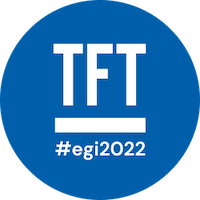Conveners
EGI-ACE Lightning Talks: Technologies for a Compute Continuum
- Levente Farkas
Presentation materials
Due to the continuous development of Internet of Things (IoT), the volume of the data these devices generate are expected to grow dramatically in the future. As a result, managing and processing such massive data amounts at the edge becomes a vital issue. Edge computing moves data and computation closer to the client enabling latency- and bandwidth-sensitive applications, that would not be...
Grid Computing, Cloud Computing, High-Performance Computing are three different fields with the same underlying idea, namely the processing and storing of data. Grid is standardized, Cloud is one step toward standardization, and HPC is an ongoing project around the world with a lot of in-house possibilities. At the National Institute for Research and Development of Isotopic and Molecular...
EGI Federated Cloud consisted of many different OpenStack sites from different organizations. In the past, users are often advised to access the IaaS services via the official endpoints of the sites. It is desired to have a universal client tool that can operate with all sites in the federation.
The FedCloud client is a high-level Python package for a command-line client designed for...
DPM storage support is gradually declining and will be discontinued in the coming years. Computing sites with this grid storage must decide what to use as their future storage technology and each migration strategy comes with different requirements for site administrator expertise, operational effort and expected downtime. We will describe the migration to dCache, which relies on tools...
Nowadays, more and more services are dynamically deployed in Cloud environments. Usually, the services hosted on virtual machines in Cloud are accessible only via IP addresses or pre-configured hostnames given by the target Cloud providers, making it difficult to provide them with meaningful domain names. The Dynamic DNS service for EGI Infrastructure is developed for solving the...

